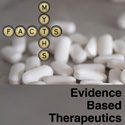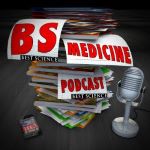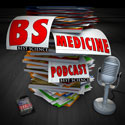Episode 191: A New Year brings new questions and some new but mainly old answers – PART III
In episode 191, Mike and James finally get to the end of the latest listener questions. We try our best to answer issues about niacin, insulin, COPD, hypertension and most importantly sputum color. At the end we also question the questioner’s questions, which leads us to even more questioning.
Show notes
1) Two studies of niacin
AIM-HIGH
HPS2-THRIVE
2) Tools for Practice
The long and short of long acting insulin analogues (versus NPH)?
3) Sputum color
4) HYVET
5) Tools for practice
5) Chorthalidone versus hydrochlorothiazide
6) 150 SBP vs 140 SBP



